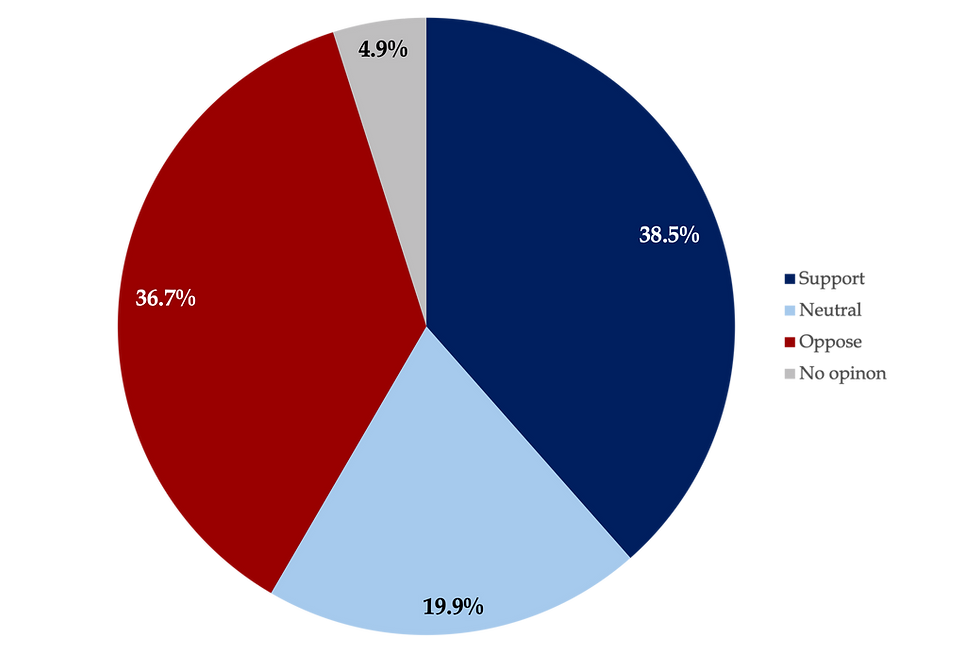Mitt Romney Urges “Respect For Other Ideas”
- Danielle Mitalipov

- Feb 8, 2024
- 3 min read

The Utah Senator believes the HBS practice of open debate can combat polarization.
“It is hard to wake up in the morning and feel optimistic about the world,” former HBS Dean Nitin Nohria shared to open January’s inaugural speaker event of the “Harvard Dialogues” series. It was a somber yet apt introduction for the topic of the night: “Leading When It’s Difficult.” Few alumni would be more qualified to speak on the subject than guest speaker and HBS alumni Senator Mitt Romney (MBA ’74), who joined Nohria virtually. Later, Nohria posed the question to Romney directly: “How do you live in a world like this? What does leadership look like?”
In response, Romney shared that the world of business, particularly his time at Bain Capital, had shaped his philosophy of service: “I listen to the people and can be persuaded that I’m wrong…but my values, I don’t vary from those. It’s allowed me to sometimes make decisions that don’t make a lot of sense to people.” Romney, who came under fire from the Republican party for vocally opposing former President Donald Trump, has certainly stood by those values in his political career.
His pragmatic problem-solving and business experience rang clear throughout the evening, the American flag displayed prominently in the background of his office. On the topic of AI, he joked that “seventy year olds like me” were unlikely to develop successful regulation. Rather, he proposed engaging the private sector to both “protect ourselves and take advantage of the opportunities” that AI presented. He encouraged HBS students to be at the forefront of that opportunity by buying prominent AI companies, leading Nohria to quip that “the private equity person never goes away.”
Romney’s rational approach was not limited to the world of business and technology. He recalled the importance of data-driven decision making in his initiative to improve education during his tenure as Massachusetts governor, a skill he credited to his time as a consultant. Of the Israel-Palestine crisis, he noted the failure of the historical approach of “bottling up Hamas, and letting off the steam slowly,” and instead advocated a two state solution “with metrics of some kind” to prevent further conflict in the region. Romney emphasized the need for American leadership in resolving the crisis, a theme which arose again when he affirmed U.S. funding for Ukraine. His justification for the policy: if the U.S. lost credibility as a protector of freedom, then we would lose the trust of other vulnerable allies such as Taiwan, and enemies would feel more emboldened to attack US allies. It was the kind of sharp, clear-eyed stakeholder analysis that would have been well received in an HBS classroom.
In fact, Romney lamented the national decline of such reasoned discourse as the United States has grown more politically polarized. He attributed the disturbing trend to identity politics, and accused both political parties of stoking the flames. Democrats had taken increasingly divisive stances, such as “that we should let transgender biological males compete with females, that we should defund our police and open up our borders,” a statement which elicited murmurs from the crowd. Republicans, on the other hand, had abandoned their platform and become “the party of a person, entirely based upon identity” following Trump’s election. The cure for the poison was, in his view, strong leadership and respect for opposing viewpoints. HBS is a paragon of these views, enabling students to “express different points of view…I’m counting on [HBS students] to leaven the public dialogue.”
Romney no doubt views future business leaders as critical agents of change during turbulent times. Ultimately, however, when asked for parting advice to the audience, he counseled students to avoid chasing external measures of success. “Those things are, to a great degree, subject to luck and serendipity,” he explained. “But if instead you define yourself by things you control [such as] your relationships, your faith, your character…your life will be highly successful, regardless of what your bank account looks like.”

Danielle Mitalipov (MBA ‘25) is an RC interested in scaling climate technology and renewable energy generation. She is a Student Sustainability Associate (SSA), and helped organize the HBS Climate Symposium. Prior to HBS, she studied philosophy at Stanford University, and led merchandising for a global brand at adidas. Outside of school, she is usually writing or watching the latest release at the Coolidge Corner Theater.




Comments